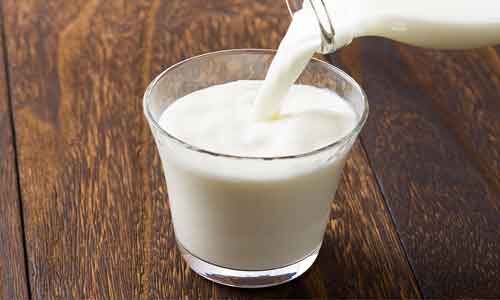- Home
- Medical news & Guidelines
- Anesthesiology
- Cardiology and CTVS
- Critical Care
- Dentistry
- Dermatology
- Diabetes and Endocrinology
- ENT
- Gastroenterology
- Medicine
- Nephrology
- Neurology
- Obstretics-Gynaecology
- Oncology
- Ophthalmology
- Orthopaedics
- Pediatrics-Neonatology
- Psychiatry
- Pulmonology
- Radiology
- Surgery
- Urology
- Laboratory Medicine
- Diet
- Nursing
- Paramedical
- Physiotherapy
- Health news
- Fact Check
- Bone Health Fact Check
- Brain Health Fact Check
- Cancer Related Fact Check
- Child Care Fact Check
- Dental and oral health fact check
- Diabetes and metabolic health fact check
- Diet and Nutrition Fact Check
- Eye and ENT Care Fact Check
- Fitness fact check
- Gut health fact check
- Heart health fact check
- Kidney health fact check
- Medical education fact check
- Men's health fact check
- Respiratory fact check
- Skin and hair care fact check
- Vaccine and Immunization fact check
- Women's health fact check
- AYUSH
- State News
- Andaman and Nicobar Islands
- Andhra Pradesh
- Arunachal Pradesh
- Assam
- Bihar
- Chandigarh
- Chattisgarh
- Dadra and Nagar Haveli
- Daman and Diu
- Delhi
- Goa
- Gujarat
- Haryana
- Himachal Pradesh
- Jammu & Kashmir
- Jharkhand
- Karnataka
- Kerala
- Ladakh
- Lakshadweep
- Madhya Pradesh
- Maharashtra
- Manipur
- Meghalaya
- Mizoram
- Nagaland
- Odisha
- Puducherry
- Punjab
- Rajasthan
- Sikkim
- Tamil Nadu
- Telangana
- Tripura
- Uttar Pradesh
- Uttrakhand
- West Bengal
- Medical Education
- Industry
Consumption of high-fat milk linked to higher ageing risk in adults finds study

USA: Consumption of low-fat milk -- nonfat and 1% milk -- as compared to typical 2% milk lowers the risk of aging in adults, a recent study in the journal Oxidative Medicine and Cellular Longevity has found. The results support the latest Dietary Guidelines for Americans (2015–2020), which recommend the consumption of low-fat milk, but not high-fat milk, as part of a healthy diet.
Studies evaluating the effect of adult milk consumption of health and disease have yielded inconsistent findings. Some studies have indicated cow milk consumption to be associated with good health while others have shown it to be associated with an increased risk of disease and mortality. Larry A. Tucker, Brigham Young University, College of Life Sciences, SFH, Provo, Utah, USA, assessed associations between milk intake frequency (daily drinkers vs. weekly drinkers or less) and milk fat consumption (whole vs. 2% vs. 1% vs. skim) and telomere length, an index of biological aging using an NHANES sample of 5,834 U.S. adults and a cross-sectional design.
The variables of milk consumption were assessed with the NHANES Diet Behavior and Nutrition questionnaire. Leukocyte telomere length was measured through the quantitative polymerase chain reaction method. Results showed that milk consumption frequency was not related to telomere length; however, there was a strong association between milk fat intake and telomere length.
"It was surprising how strong the difference was," Tucker said. "If you're going to drink high-fat milk, you should be aware that doing so is predictive of or related to some significant consequences."
Key findings of the study include:
- With the sample delimited to milk drinkers only, milk fat intake was linearly and inversely related to telomere length, after adjusting for the covariates.
- For each 1 percentage point increase in milk fat consumed (e.g., 1% to 2%), adults had more than 4 years of additional biological aging.
- With milk fat intake divided into 5 categories (i.e., milk abstainers, nonfat, 1%, 2%, and full-fat milk), mean telomere lengths differed across the categories.
- The mean telomere difference between the extremes of milk fat intake (nonfat vs. full-fat) was 145 base pairs, representing years of additional biological aging for full-fat milk consumers.
- Effect modification testing indicated that the milk fat and cellular aging association may be partly due to saturated fat intake differences across the milk fat groups.
- When the sample was delimited to adults reporting only high total saturated fat intake (tertile 3), the milk fat and telomere relationship was strong.
- When the sample was restricted to adults reporting only low saturated fat consumption (tertile 1), there was no relationship between milk fat intake and telomere length.
"It's not a bad thing to drink milk," Tucker said. "You should just be more aware of what type of milk you are drinking."
"The key finding of the present study was that U.S. adults who typically drink high-fat milk have substantially shorter telomeres than those who drink low-fat milk. Overall, the present investigation highlights the potential cellular aging disadvantage associated with U.S. adults consuming high-fat milk," wrote the authors.
The study, "Milk Fat Intake and Telomere Length in U.S. Women and Men: The Role of the Milk Fat Fraction," is published in the journal Oxidative Medicine and Cellular Longevity. Read on the link below
Dr Kamal Kant Kohli-MBBS, DTCD- a chest specialist with more than 30 years of practice and a flair for writing clinical articles, Dr Kamal Kant Kohli joined Medical Dialogues as a Chief Editor of Medical News. Besides writing articles, as an editor, he proofreads and verifies all the medical content published on Medical Dialogues including those coming from journals, studies,medical conferences,guidelines etc. Email: drkohli@medicaldialogues.in. Contact no. 011-43720751


